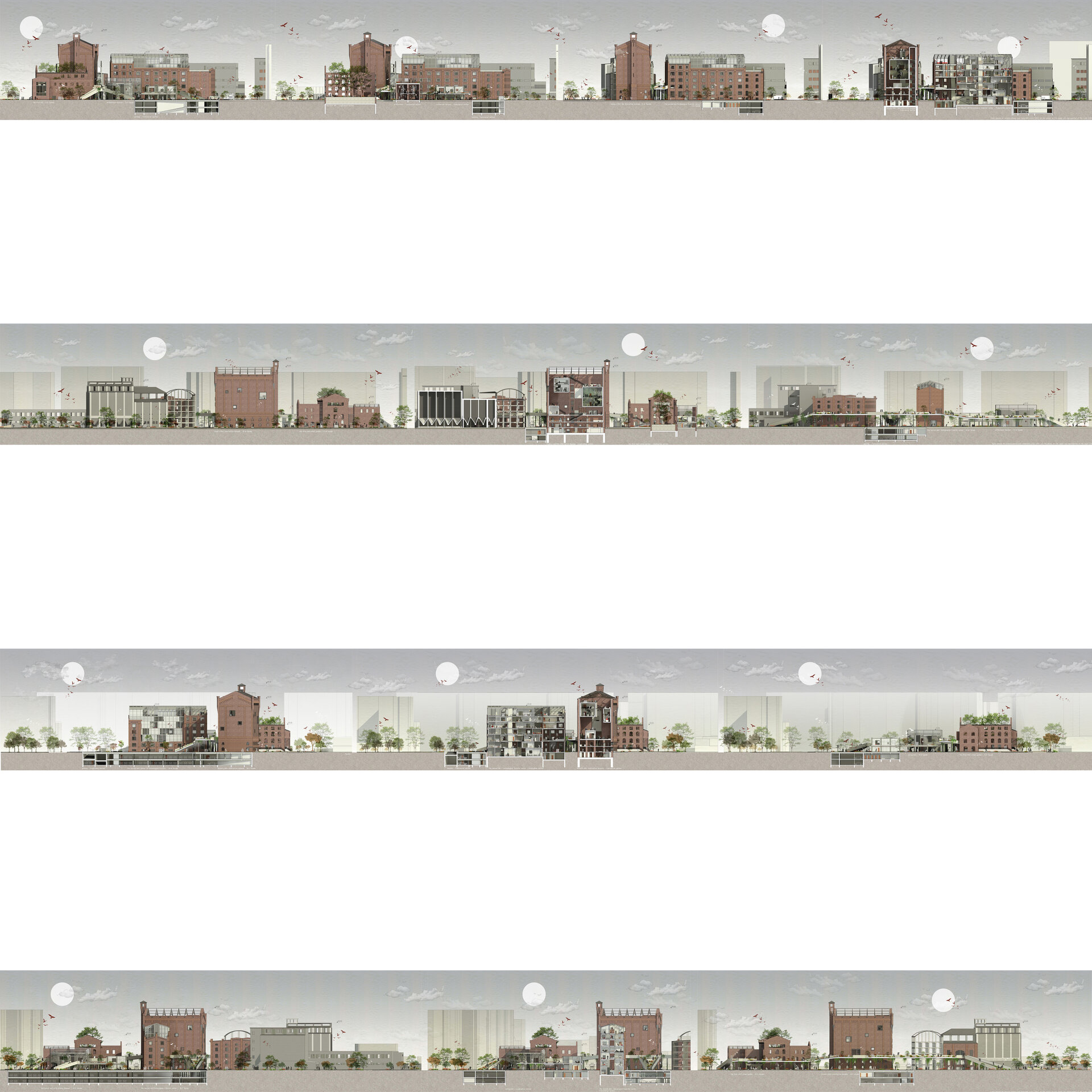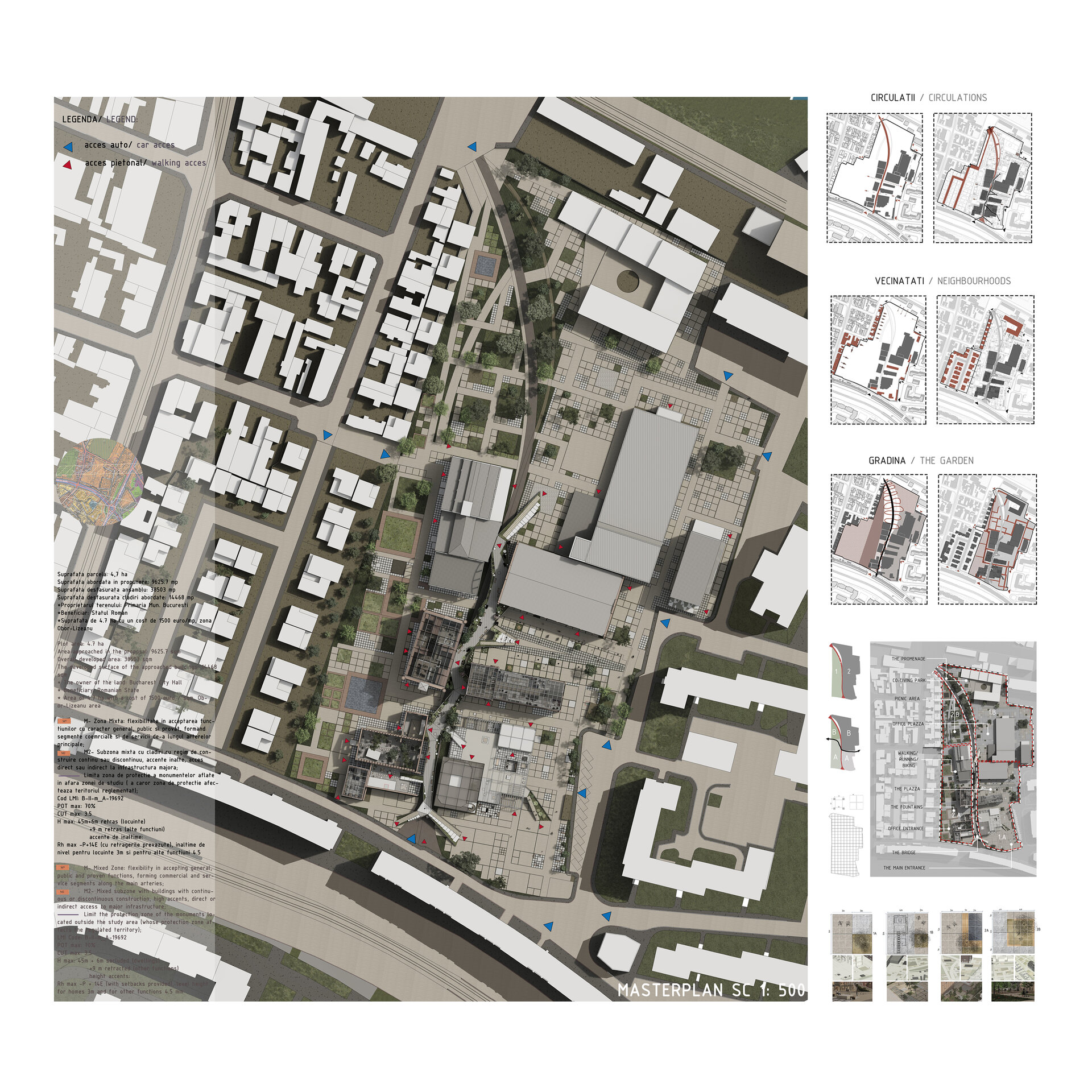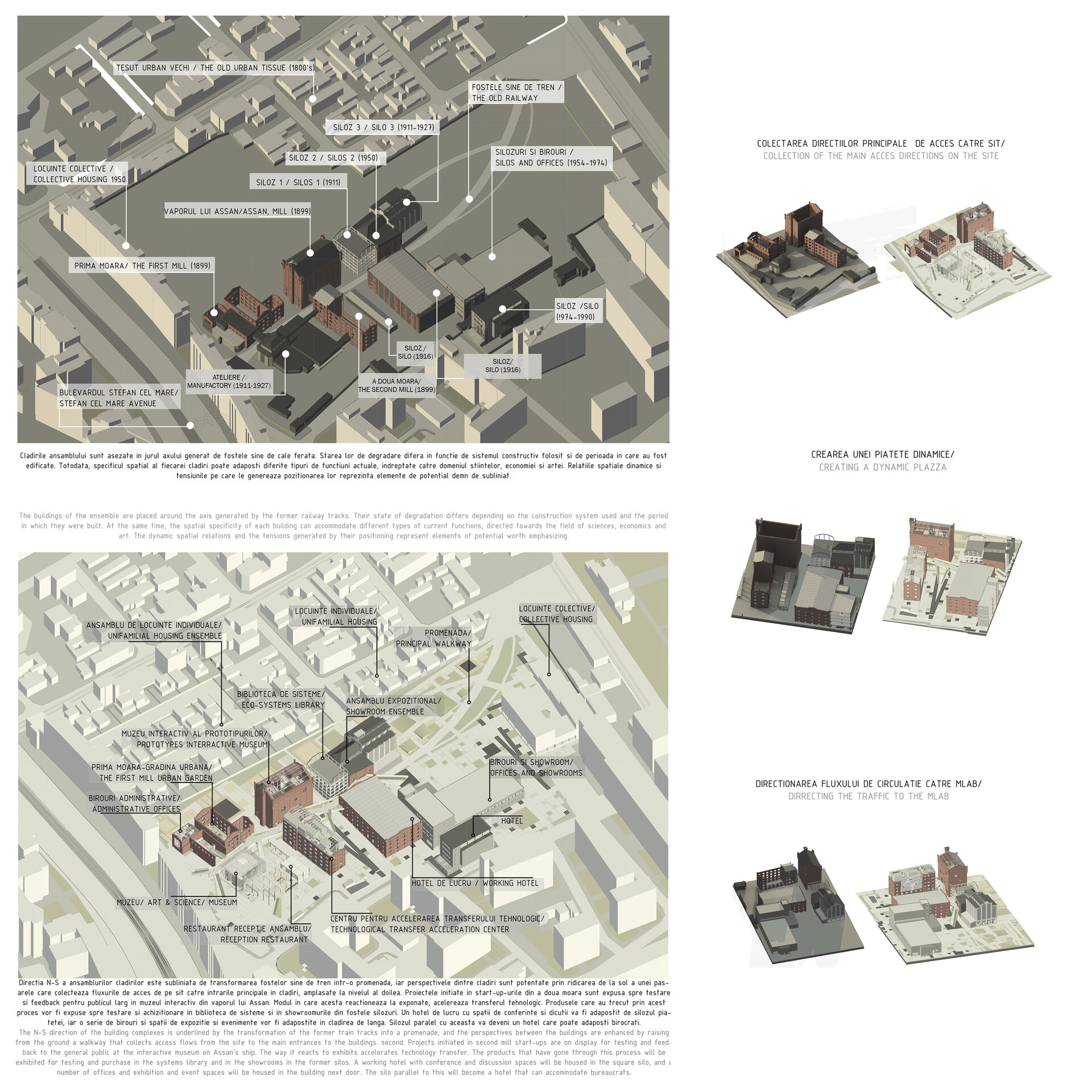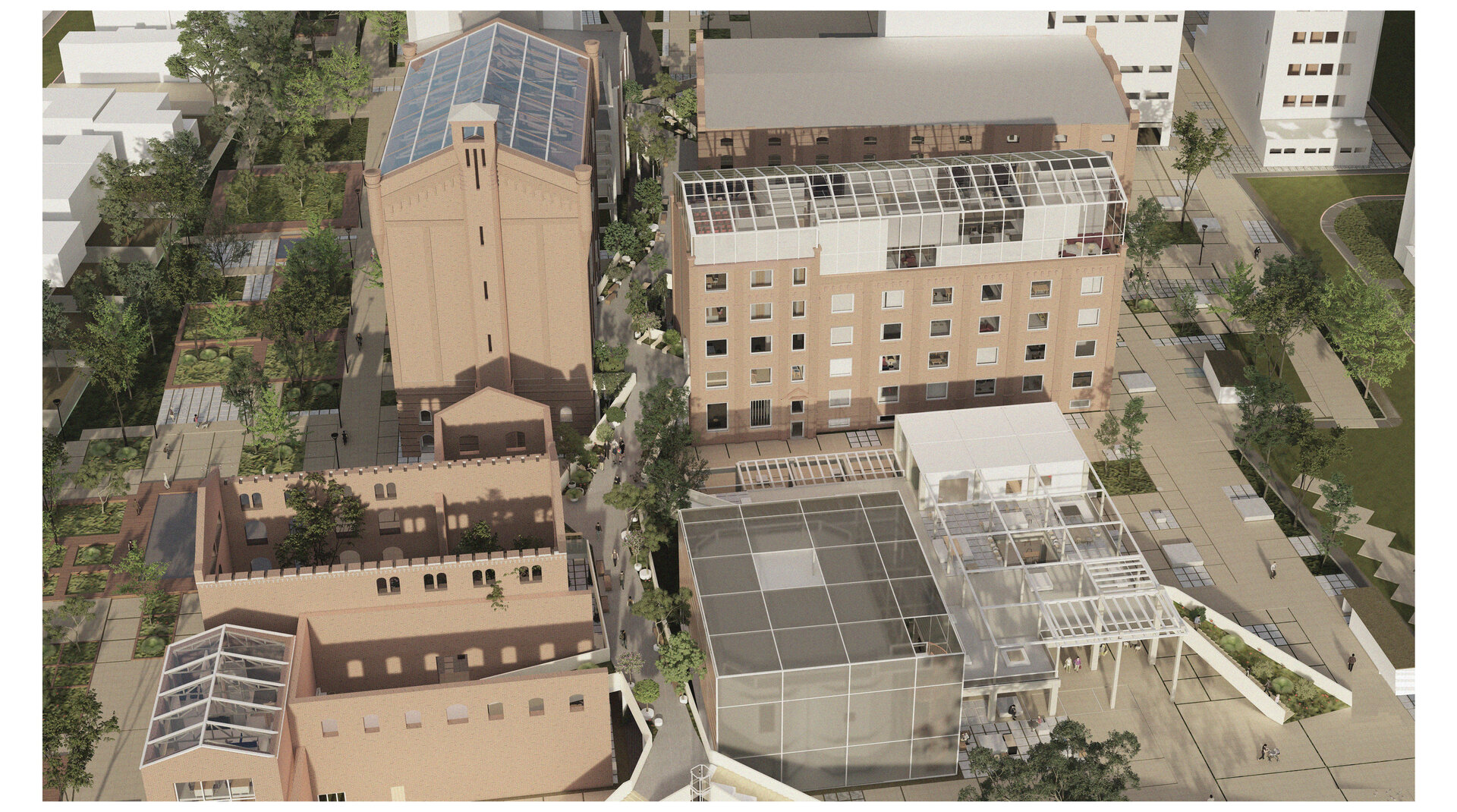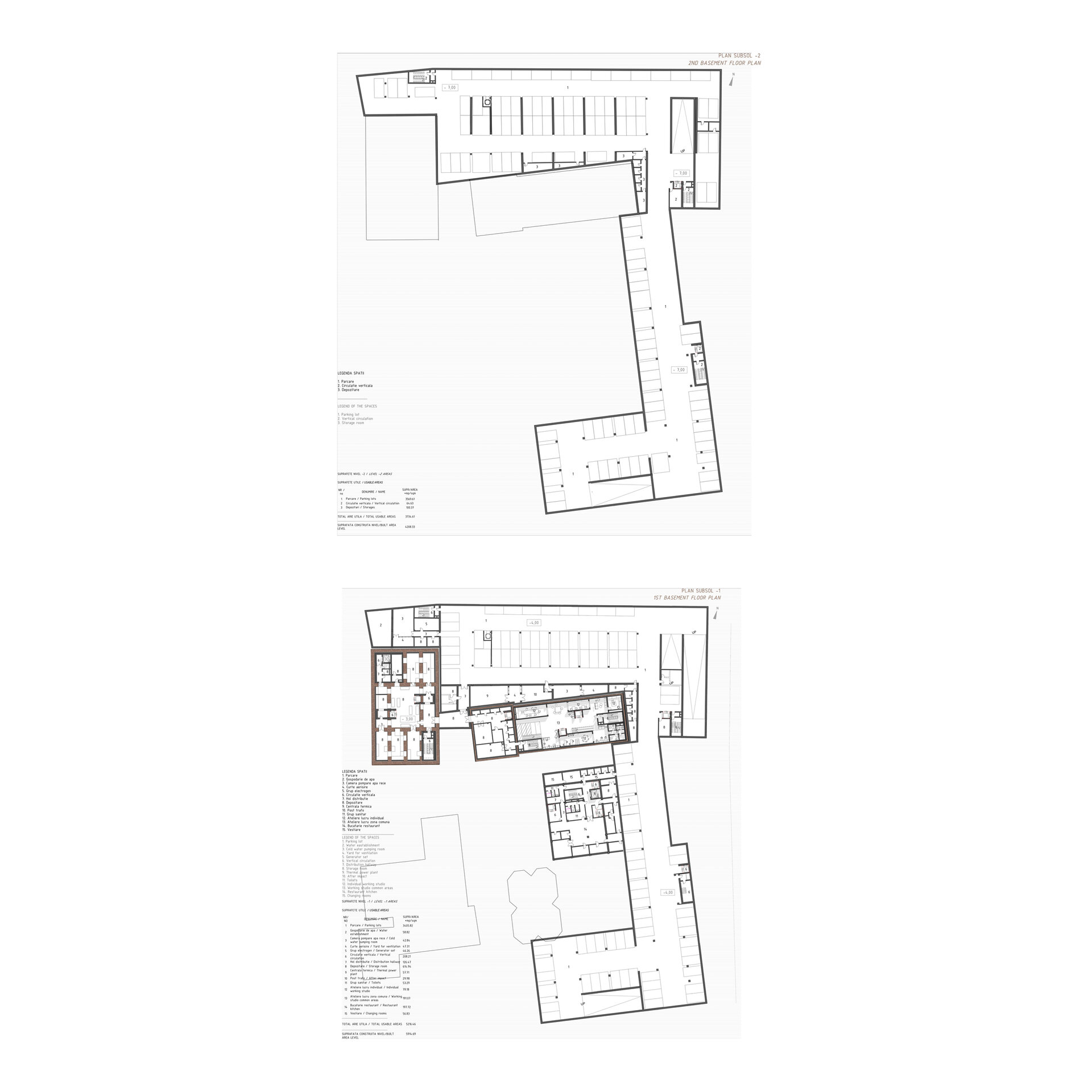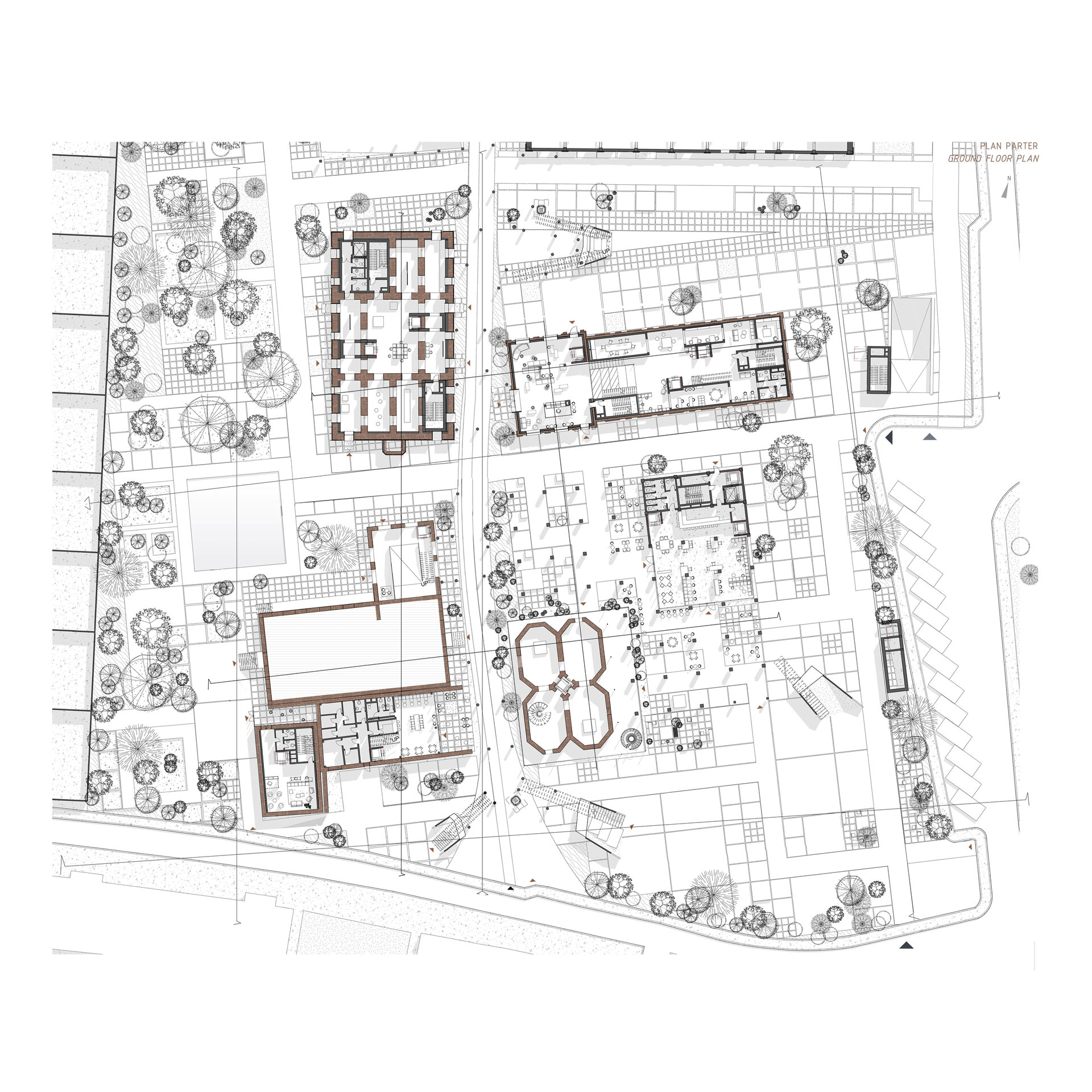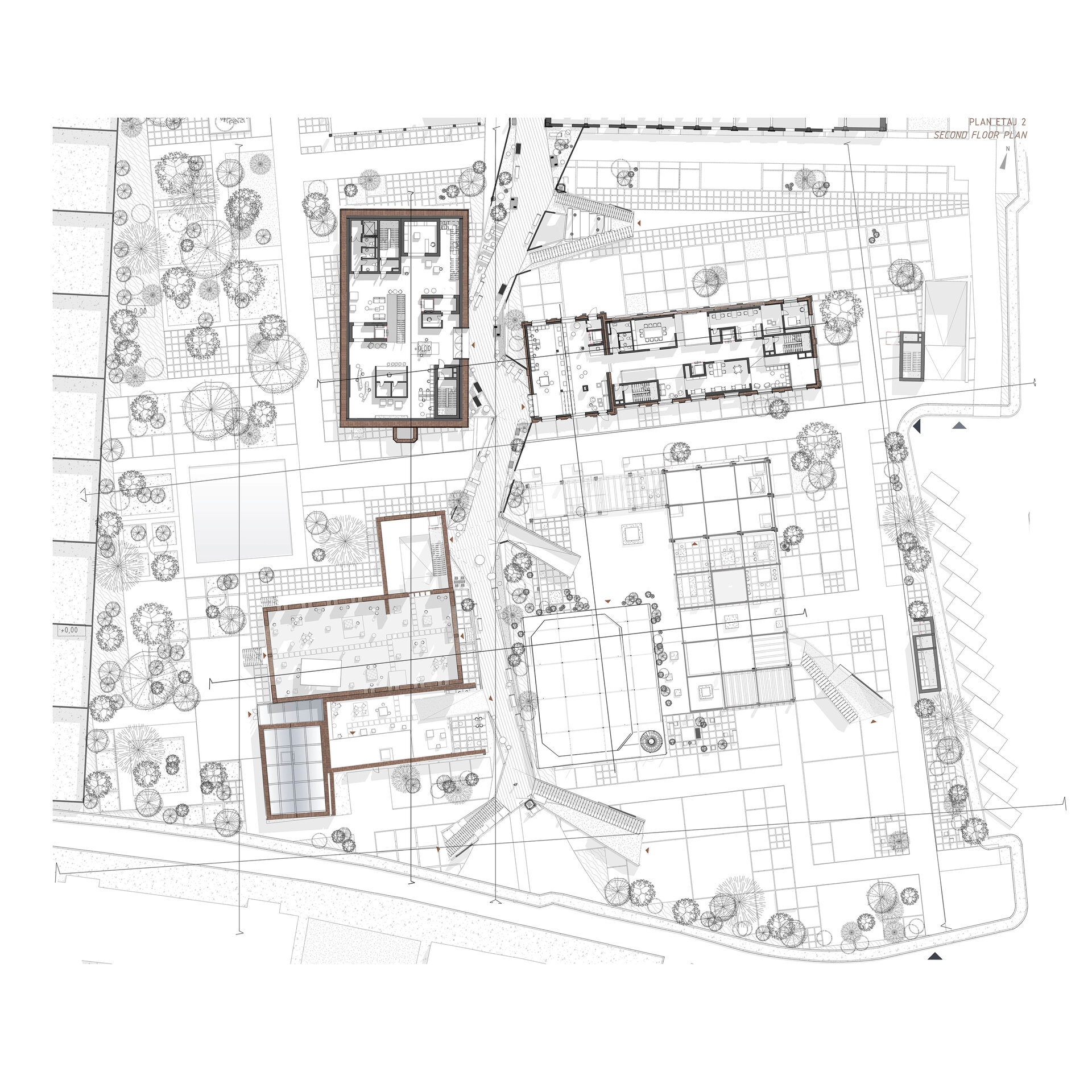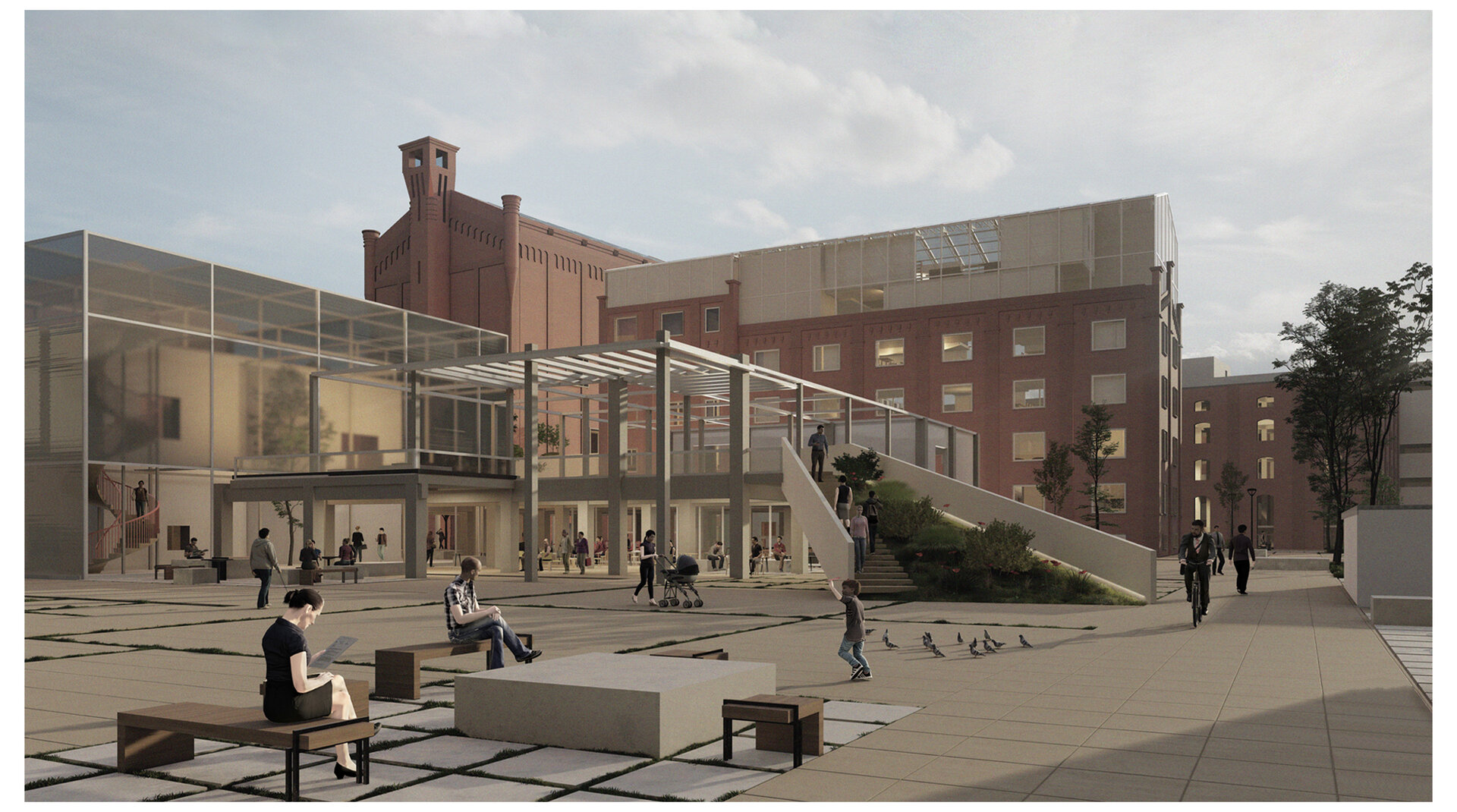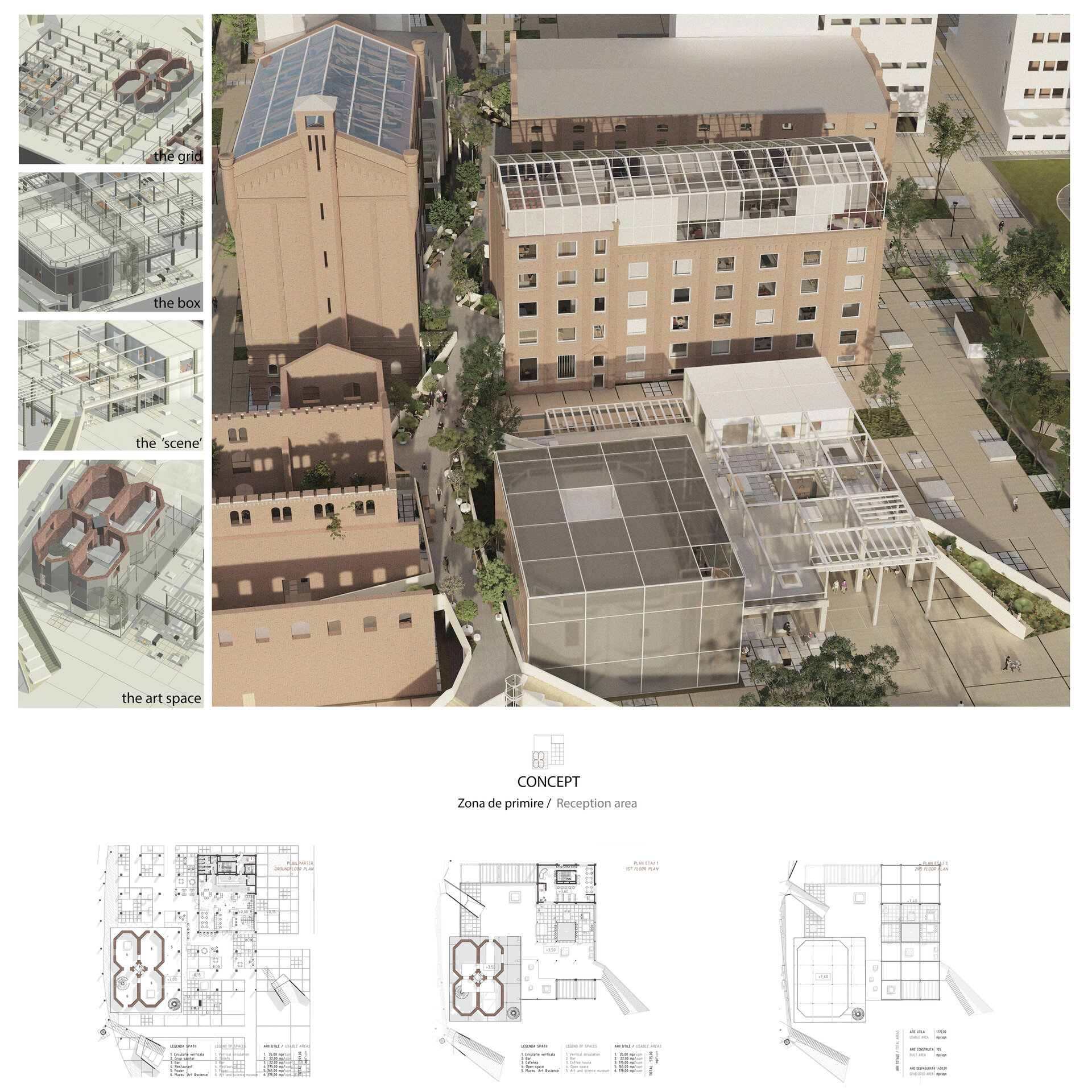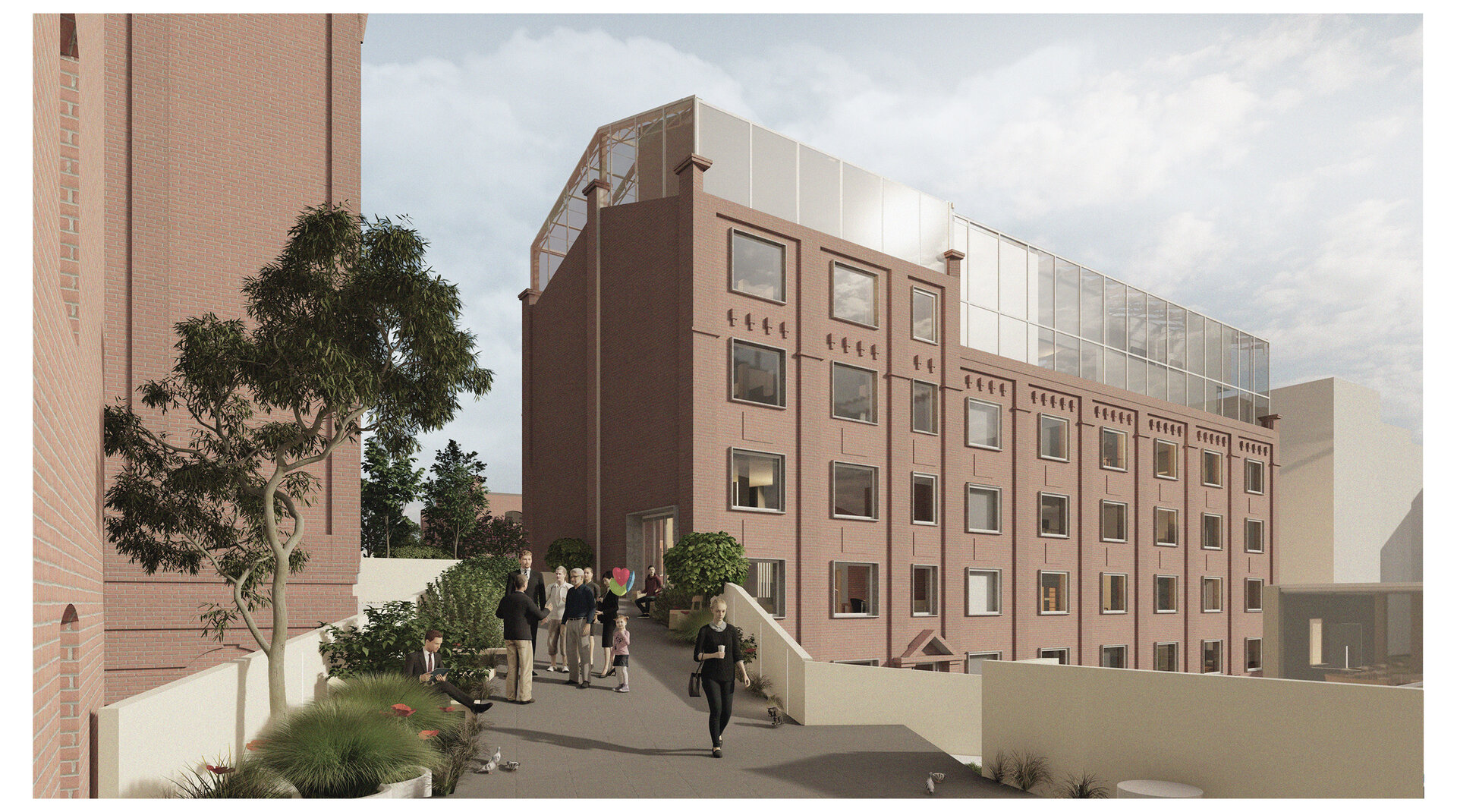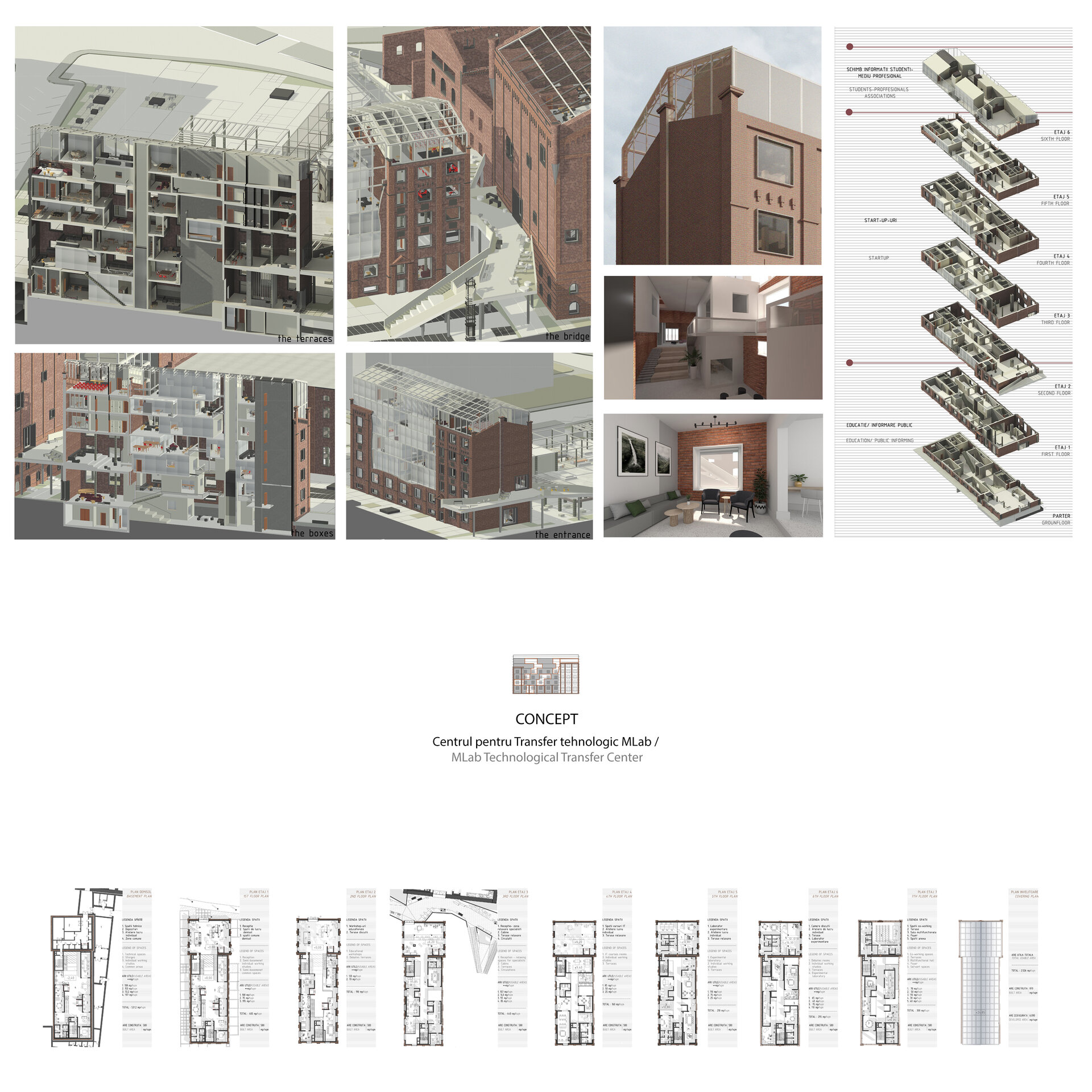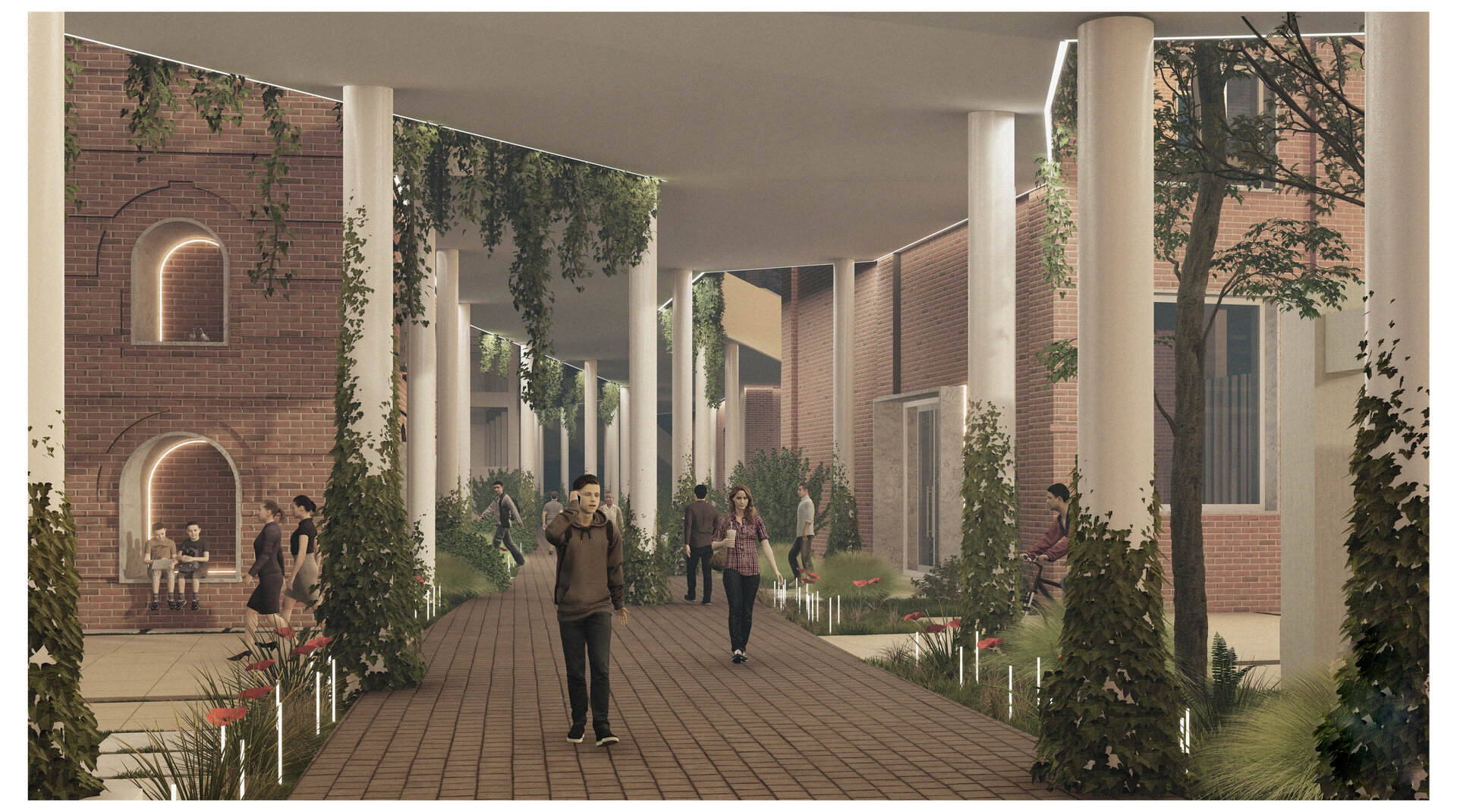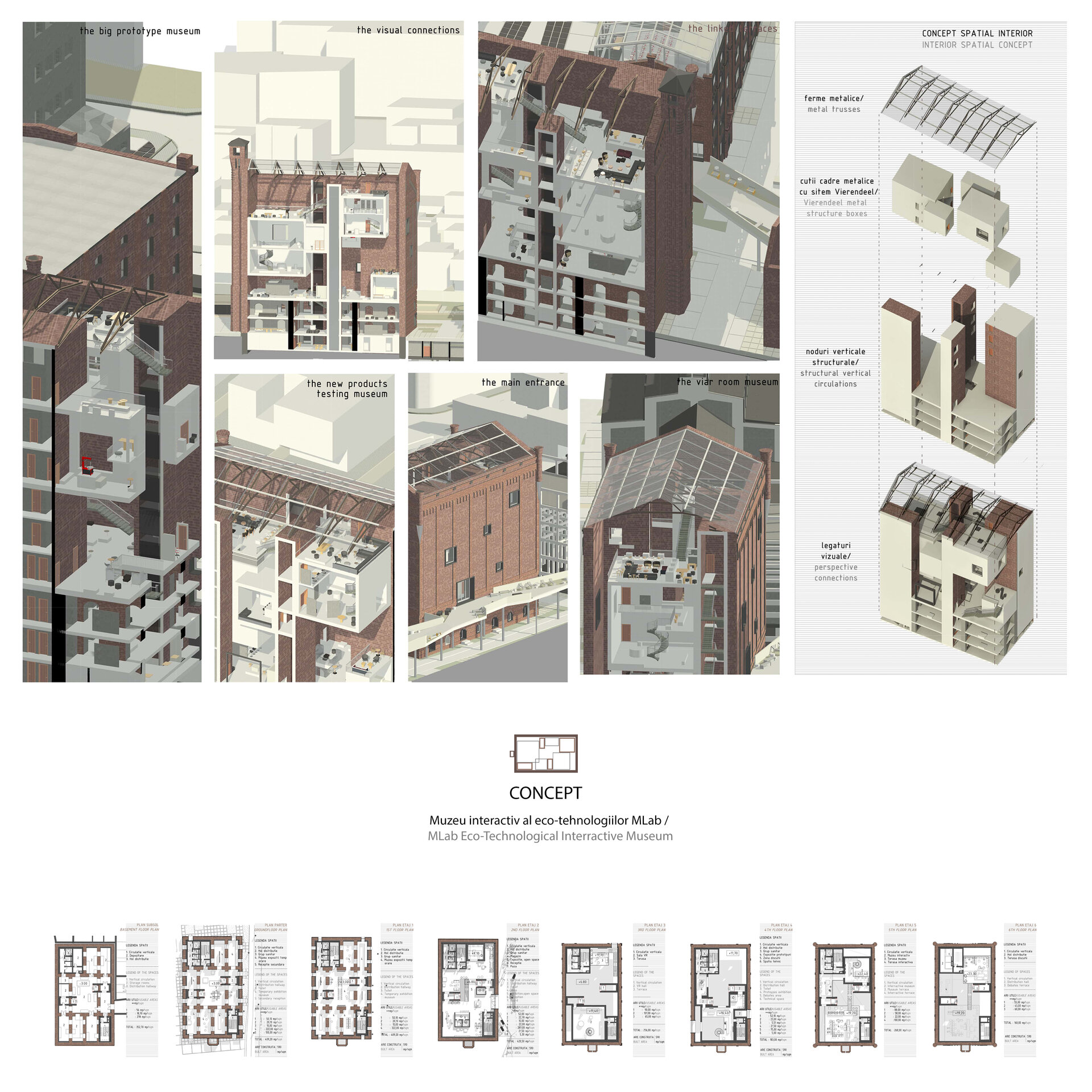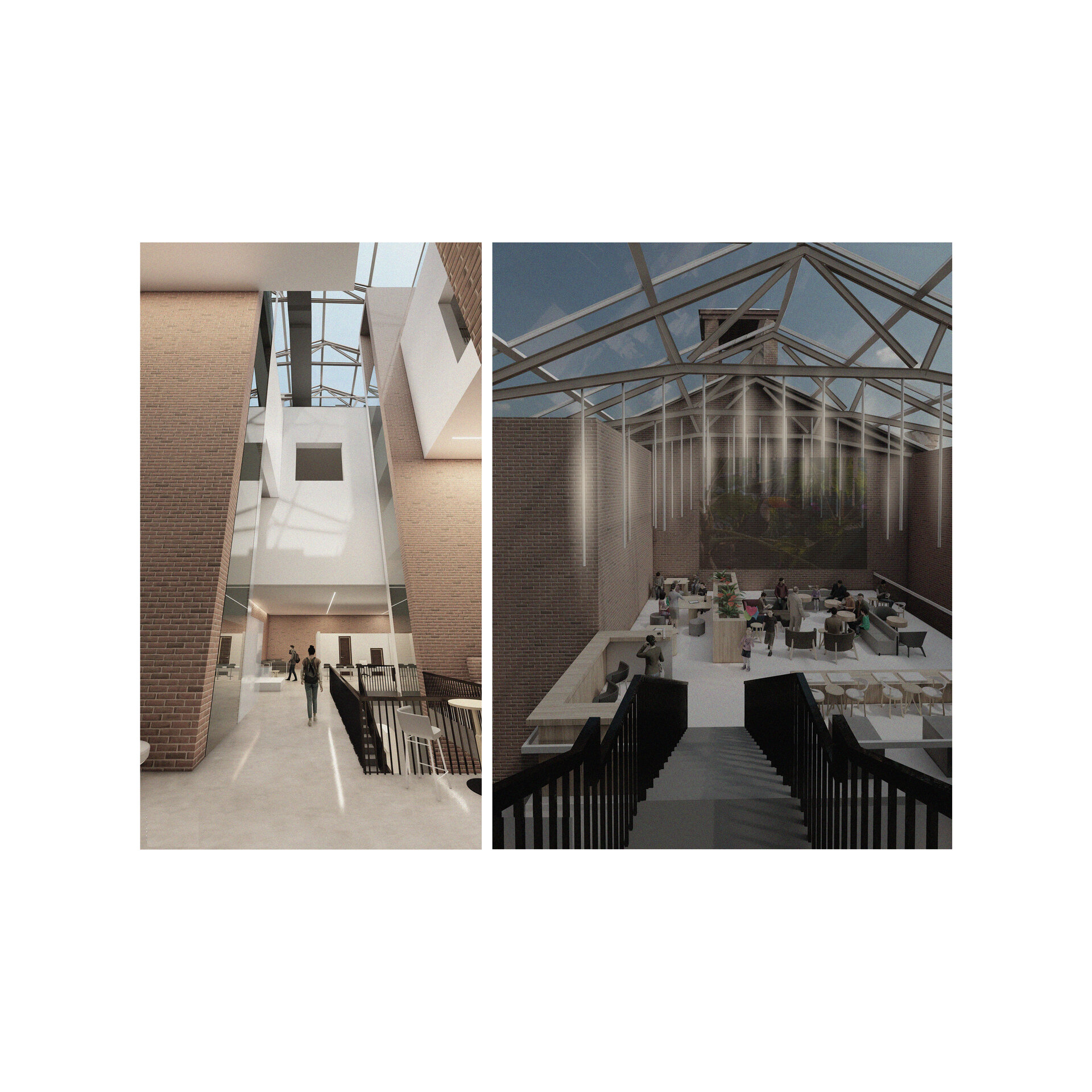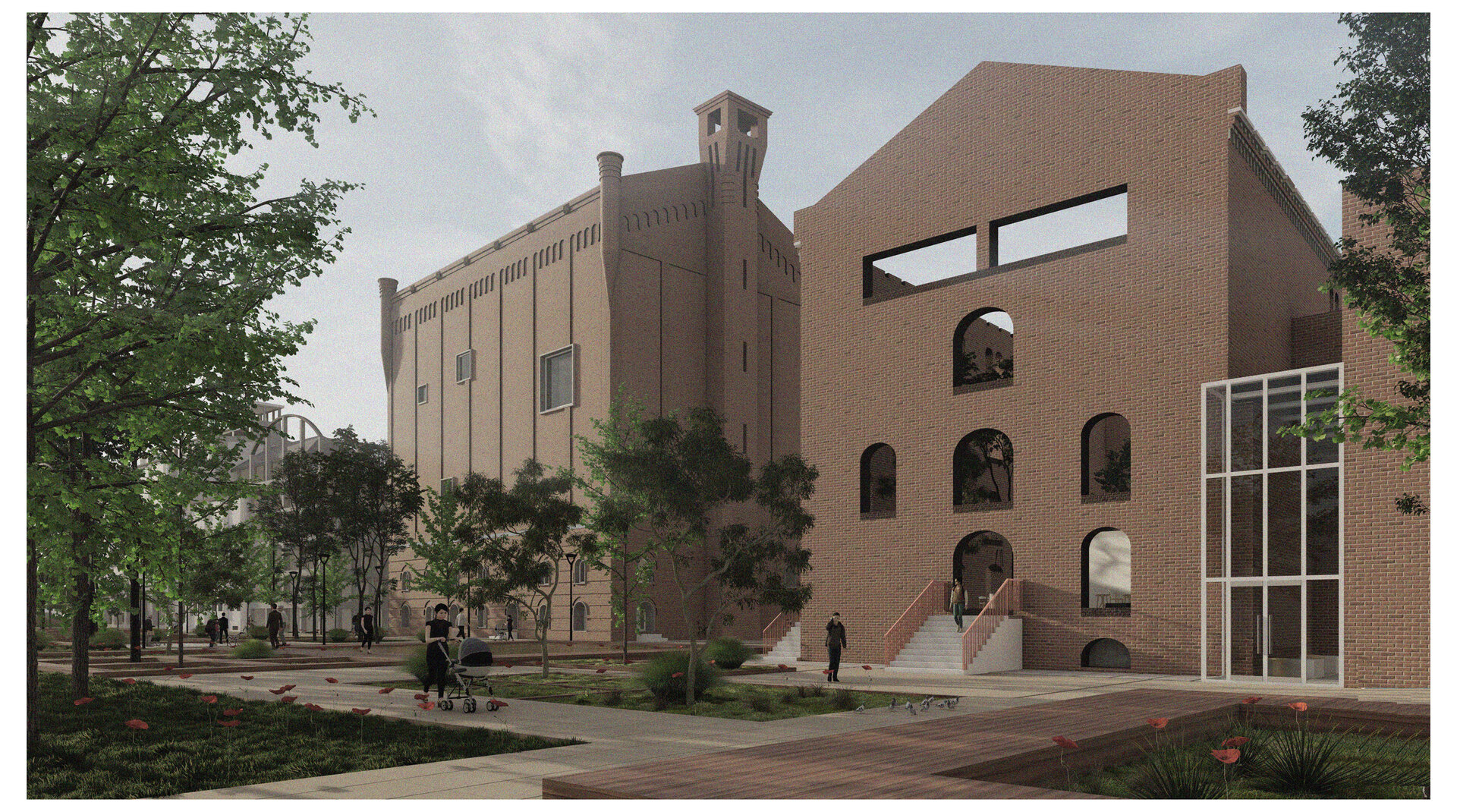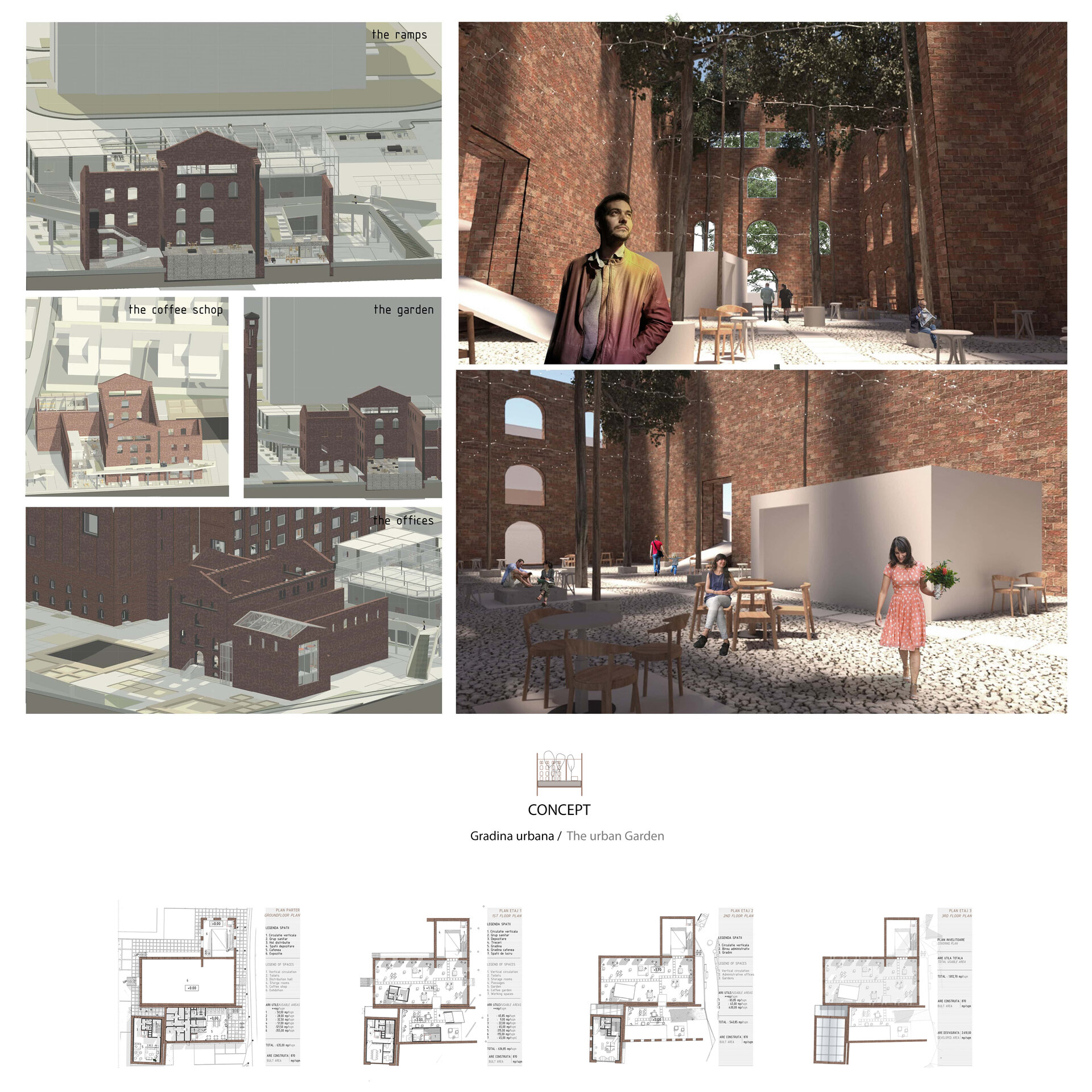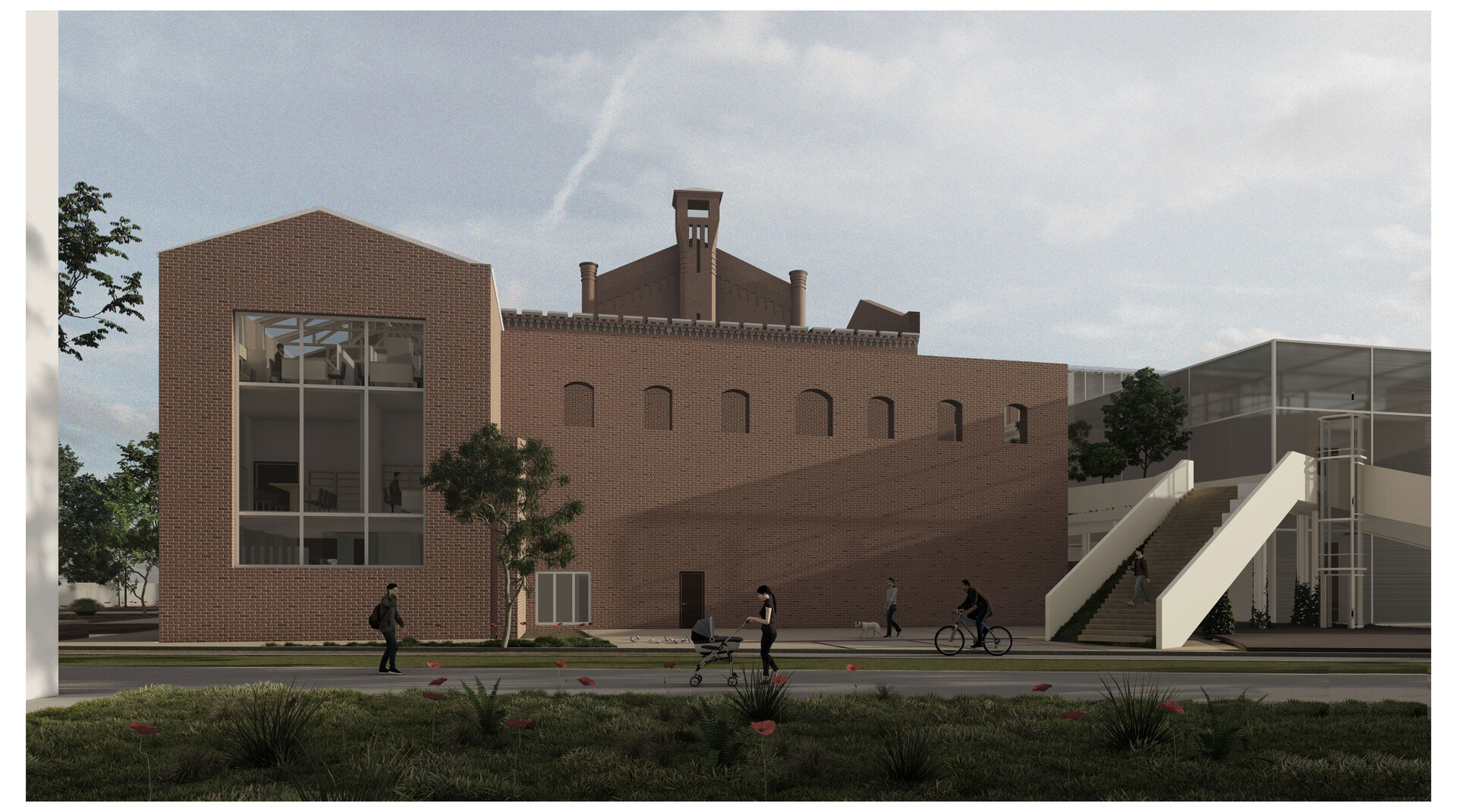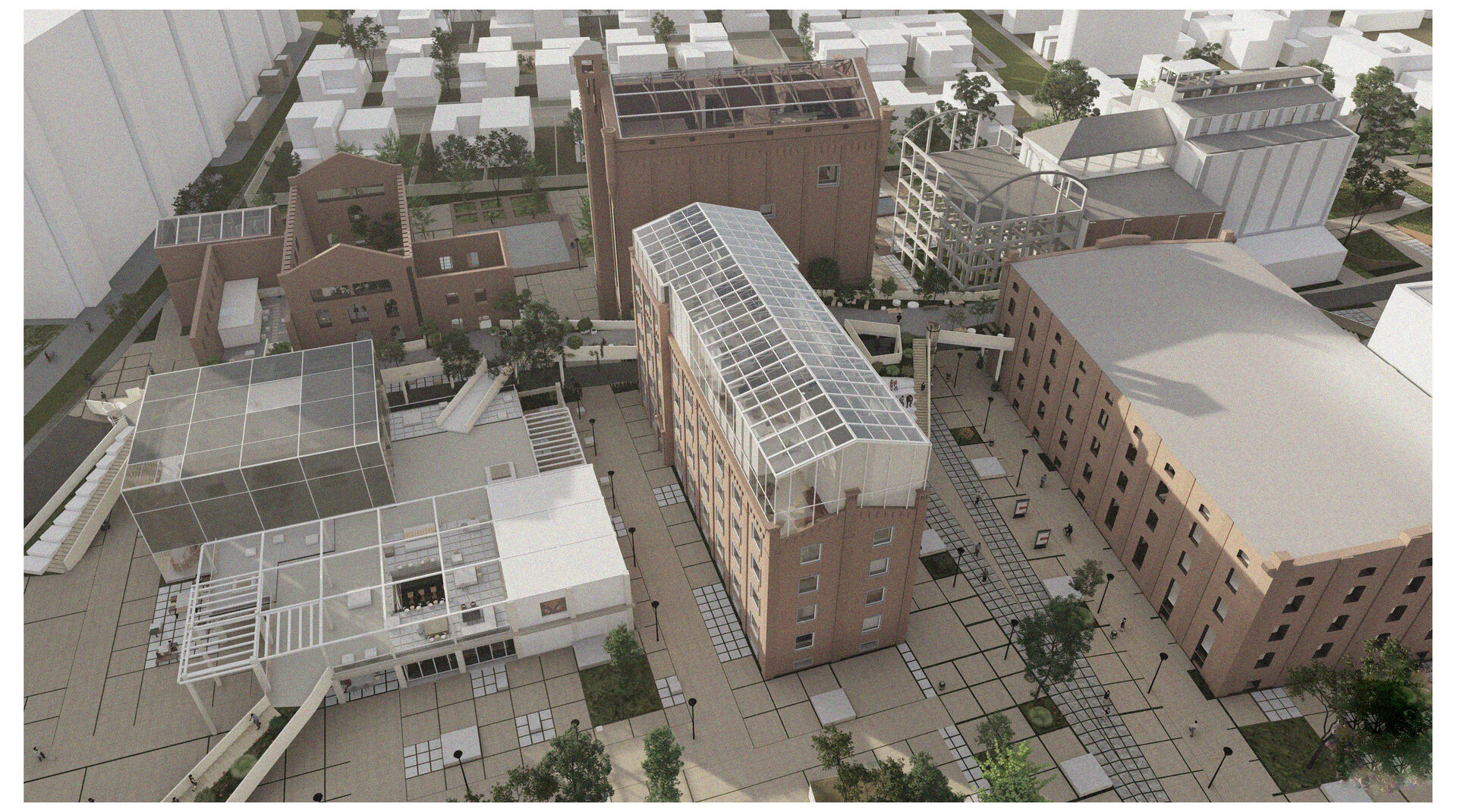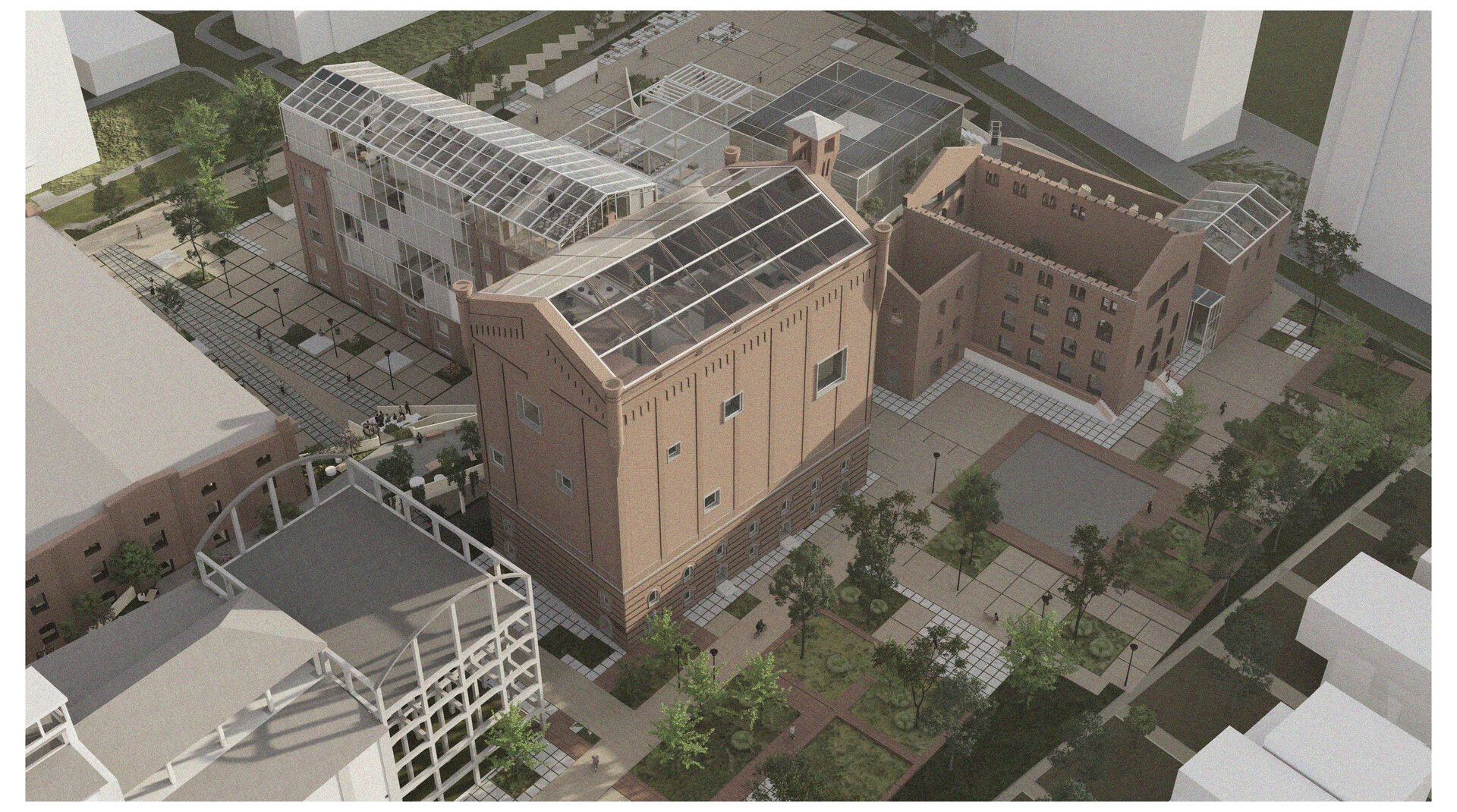
MLab-Development and Technological Transfer Center Assan's Mill
Authors’ Comment
Problematic: The current ecological and economic situation of the world pushes society to the necessity of rethinking the operating paradigms, questioning the idea of Capitalism. We observe how programmed obsolescence, as an applied part of economic growth policies, wants to accelerate the production-sale-purchase process, which implies the faster consumption of resources and energy at our disposal. Also psychological obsolescence leads to the treatment of almost any good as a disposable object, and values such as memory, the history of the place, or the idea of community are lost. As an ideological and functional alternative we find the Economy of Degrowth with practical applicability in the Social Economy and Regenerative Design model, aiming at: the need to return to the local scale and the regeneration of communities, through innovation, dependent on technological transfer and the diffusion of innovation. Solutions: As architecture determines and is determined by human activity, it can counter obsolescence. Again, psychological obsolescence transformed, through the transition to the fourth Industrial Revolution, generous areas of fabric into urban voids, so the conversion of the industrially built heritage is activated as a resource in the regeneration of the urban fabric. In order for change to occur, the idea of maintenance, reuse and reconstruction in combating obsolescence needs the rethinking of design processes, through an architecture of complexity. The Living Building Challenge certification system proposes the transformation of buildings and complexes into small ecosystems, which help natural environment to regenerate. Conclusions: We sound the alarm and discuss the Assan Mill, the core of the First Industrial Revolution in Romania, with continuous operation until the Fourth. It's current state is a direct result of programmed physical and psychological obsolescence. So, we propose a manifesto project that will counteract its effects and reactivate the memory of the place and the spirit of the surrounding community by transforming the mill into the Center for Development and Technological Transfer MLab. We emphasize the social and collaborative nature of the activities that reinterpret the idea of production in a contemporary sense: a laboratory of innovative ideas in the design of which the general public, to which they are intended, gives feedback and tests new technologies. Thus, we propose: interactive museum of eco-technologies in the Assan Steamship, center for start-ups in the second mill of the complex, we transform the traces of the former repair workshops into a restaurant and an art&science museum and bring back the aspect of memory the place by transforming the first mill into an urban garden. The track of the former railway tracks becomes a promenade that connects the southern and northern areas of the future park. The spatial concept that connects the ensemble is found in the element common to all the buildings on the site: the structural grid. Thus, the landscaping takes a structural module that it multiplies over the entire surface, creating squares, reception yards and parks. The fusion of information materializes through the complex connections between buildings, enhancing understanding in a new perspective on the current world, accelerating technological transfer and transforming the whole complex into a living laboratory, where ideas are produced and the foundations of change are laid.
- Metaconnections
- Emergency center: Reintegration of the railway site C.F.R. Suceava in the contemporary circuit
- Social housing complex and Urban regeneration in the southern neighborhood
- Increasing the quality of life in a block of flats built under socialist administration - case study Soarelui neighborhood, Satu Mare
- Public intervention in the central market of Ploiești
- “Horia Bernea” School of painting
- Pinacoteca of the Anastasia Foundation - Malmaison
- Reintegration of the “Little Trianon” Palace in a contemporary circuit
- C Lab FI-LA-RET Campus-Laboratory of technological research in biomedical engineering
- Padina Mountain Center
- A church, a school, an intergenerational center
- Expo pavilions in Leonida Garden
- Apartment Building in the Protected Area no. 13, Dacia
- arhi-CULTURE. Cultural tourism in the Cave Ensamble in Buzău's Mountains
- Landscape for dance and the city. The new campus for ”Floria Capsali” School of Choreography - Rahova neighborhood, Bucharest
- Bucharest New Art Museum
- Student housing and public functions in a central protected area of Bucharest
- In between. Intermediate housing on Vaselor street, Bucharest. Vaselor Home Gardens
- Intermediate housing on Iacob Felix Entry
- Multifunctional Municipal Centre in Câmpina
- The Extension of the Folk Art Museum, Constanta
- Intergenerational learning center (eldery day care center & after-school)
- MLab-Development and Technological Transfer Center Assan's Mill
- Housing by the river
- Moara Răsărit, creative industries incubator
- Verdiales Romanian Parish Center, Malaga
- Saint Mary Institute - Library/ Foreign book study center
- Revitalizing Delfinului Food Market. A center for the community
- Antiquarium. Roman Circus of Toledo
- Revitalizing the Drăgășani wine and vine research center
